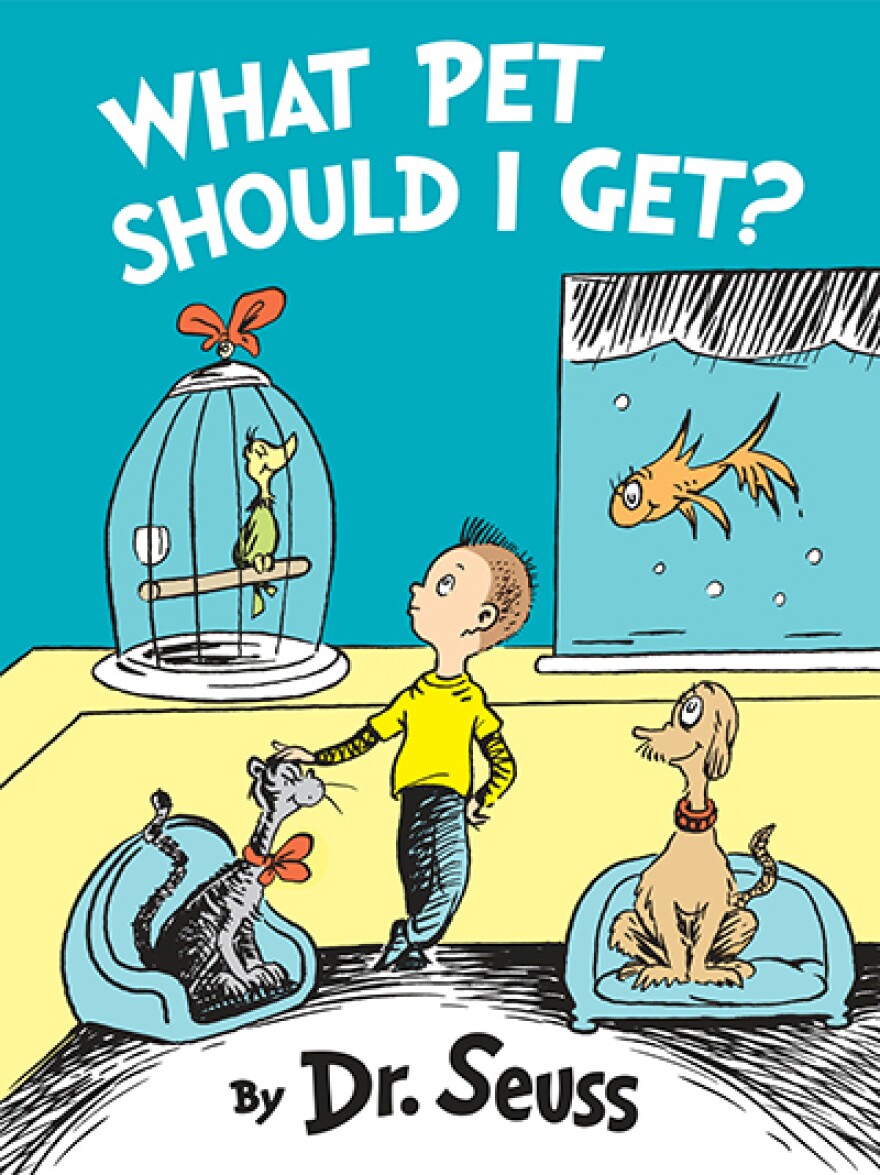Dr. Seuss fans have a big treat this summer: An unpublished manuscript found among papers left by the late children's writer has just been released.
Right inside the entrance to the Dartmouth bookstore, there it is, a book that was almost lost to history. Almost a quarter century after the death of Dr. Seuss — a.k.a. Theodor Geisel — a new book is for sale.
What Pet Should I Get? the title asks. Eleven-year-old browser Ian Curry samples the first few pages for his sister Sophie and brother Luke.
"We want a pet, we want a pet, what kind of pet should we get? Dad said we could have one, Dad said we would pay, I went to the pet shop, I went there with Kay," he reads aloud, with expression.
The characters making this tough decision are skinny, round-faced waifs, prone to daydreaming — just like a lot of Ian's favorite Seuss heroes. Ian says Geisel's books taught his whole generation to read because he gave them wacky, unforgettable characters and creatures they had never seen.
"In his time there weren't many kids' writers and he just opened up a whole new genre for kids by making all these rhyming books, teaching kids how to read and all that," he explains.

Grown-ups have taken more scholarly approaches to the works of the Dartmouth alumnus, class of 1925.
In the Seuss room of Dartmouth's Baker Library, English professor and Seuss biographer Donald Pease says the posthumous tale follows a classic Geisel plot line. Children discover the powers of their own imaginations as they escape the confines of adult thinking. The turning point comes, he says, when the little boy feels pressured to choose between a cat or a dog. His parents don't want a big expense or a messy house, so he gets inventive.
"Then he says, 'I might find a new one, a fast kind of thing who would fly round my head in a ring," Pease reads from his new copy of the book.
A thing that flies? Way better than a cat or dog. That hopeful vision helps the little boy and girl unbridle their thoughts.
"And right at the moment in which they feel that most intimately they are released to their imagination and they begin to see things that no pet shop could possibly have on offer," says Pease.

The whole menagerie that the kids think up grows not instead of, but in addition to the cat or dog their parents expect to bring home. Unlike the adults, Pease notes, the little boy is wildly inclusive as he builds an animal kingdom.
"He begins to imagine a yent. And then a tent. And then this tall thing, this beautiful bird-like creature …that, again, is outside a provenance of any pet shop but that is right in the wheel house of Dr. Seuss," says the professor.
Geisel turned to writing children's literature just after World War II. Like its precursors, this nearly forgotten book shows children how to invent a world different from the one their parents inhabit.
Pease says it's surfacing at time when we need, again, to spark young imaginations.






